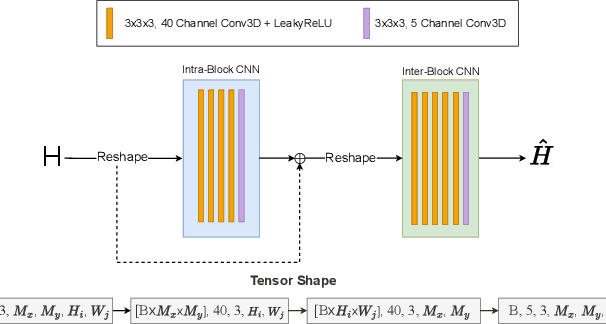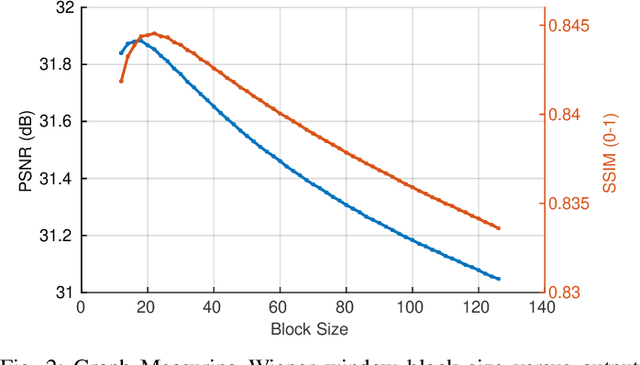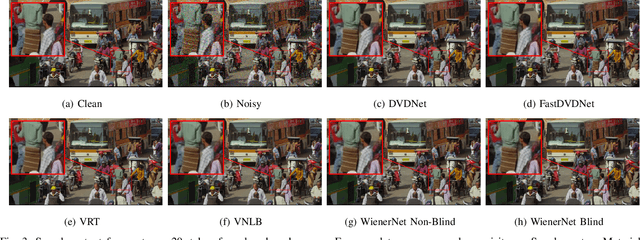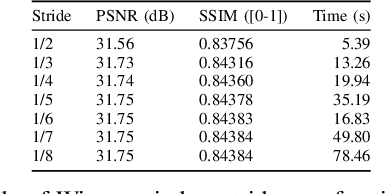Clément Bled
Lightweight Video Denoising Using a Classic Bayesian Backbone
Aug 07, 2024



Abstract:In recent years, state-of-the-art image and video denoising networks have become increasingly large, requiring millions of trainable parameters to achieve best-in-class performance. Improved denoising quality has come at the cost of denoising speed, where modern transformer networks are far slower to run than smaller denoising networks such as FastDVDnet and classic Bayesian denoisers such as the Wiener filter. In this paper, we implement a hybrid Wiener filter which leverages small ancillary networks to increase the original denoiser performance, while retaining fast denoising speeds. These networks are used to refine the Wiener coring estimate, optimise windowing functions and estimate the unknown noise profile. Using these methods, we outperform several popular denoisers and remain within 0.2 dB, on average, of the popular VRT transformer. Our method was found to be over x10 faster than the transformer method, with a far lower parameter cost.
Pushing The Limits of the Wiener Filter in Image Denoising
Mar 27, 2023



Abstract:As modern image denoiser networks have grown in size, their reported performance in popular real noise benchmarks such as DND and SIDD have now long outperformed classic non-deep learning denoisers such as Wiener and Wavelet-based methods. In this paper, we propose to revisit the Wiener filter and re-assess its potential performance. We show that carefully considering the implementation of the Wiener filter can yield similar performance to popular networks such as DnCNN.
 Add to Chrome
Add to Chrome Add to Firefox
Add to Firefox Add to Edge
Add to Edge